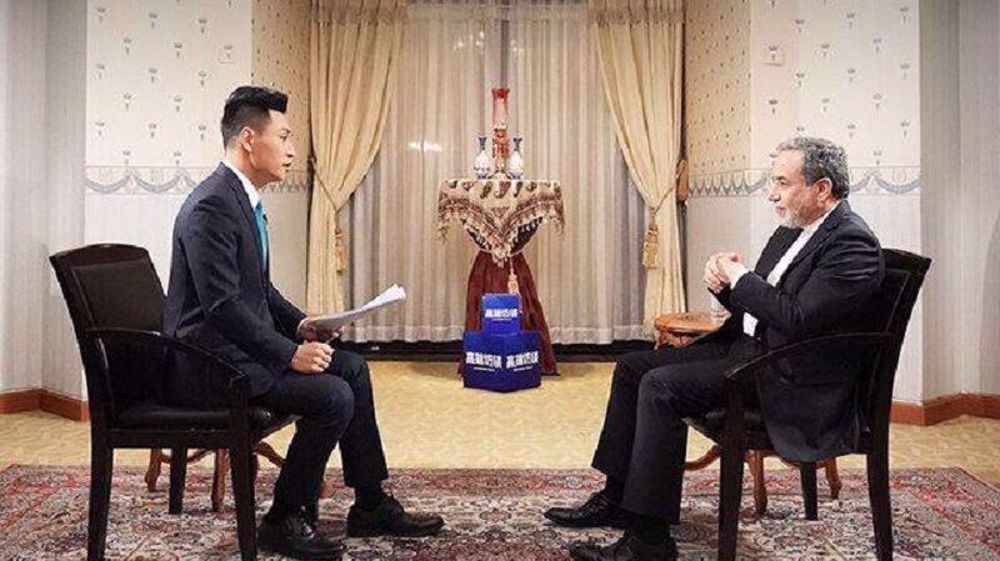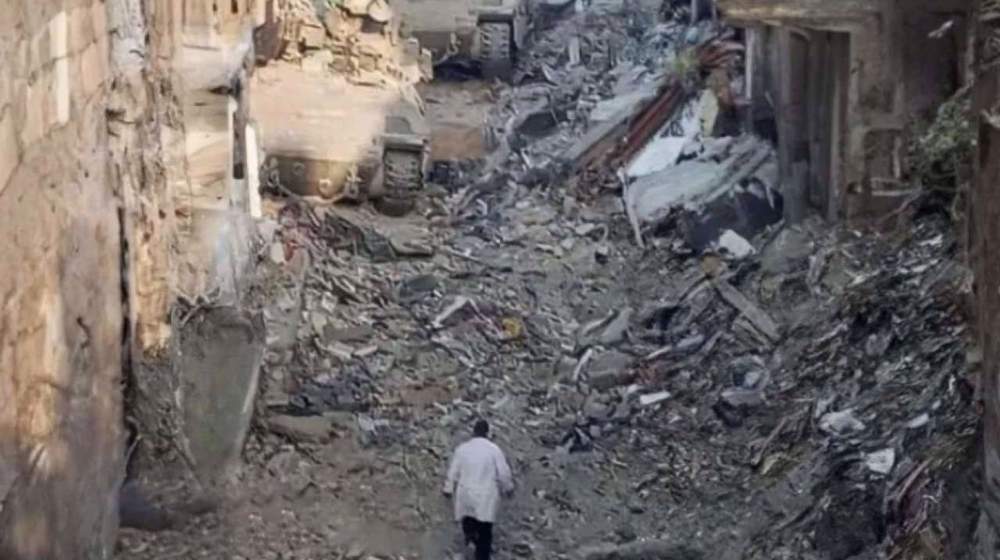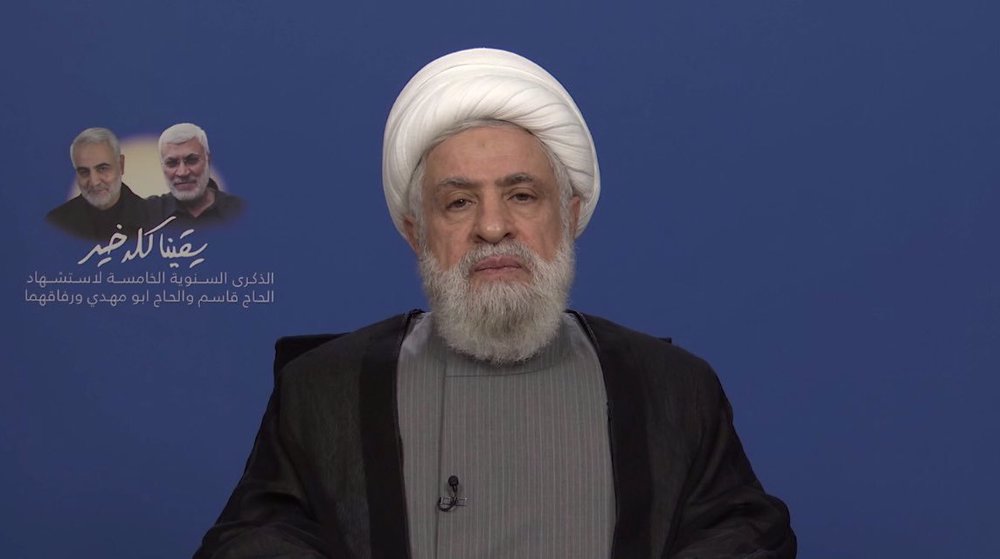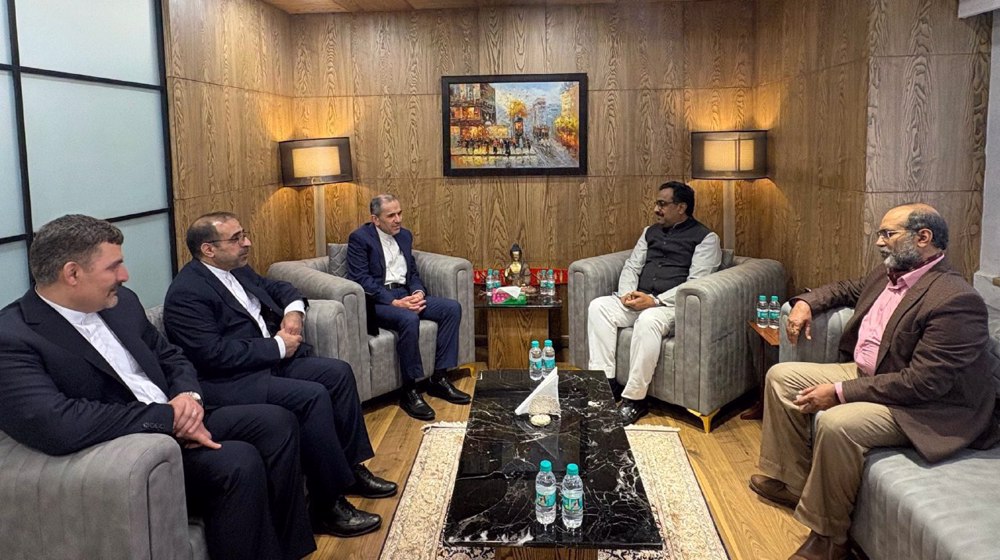Foreign Minister Araghchi: Iran ready for constructive nuclear talks
Iranian Foreign Minister Abbas Araghchi has said that the Islamic Republic is ready for constructive negotiations to reach an agreement regarding its nuclear program.
Araghchi expressed Tehran's readiness for renewed talks during an exclusive interview with China's CCTV on Friday.
Araghchi said negotiations should be aimed "at reaching an agreement."
“We are ready to enter into constructive negotiations without delay,” he stated.
“The formula we have is the same as the previous JCPOA formula, which is building trust about Iran's nuclear program in exchange for the removal of sanctions. We are ready to negotiate on this basis," he added.
The Joint Comprehensive Plan of Action (JCPOA) is the agreement signed in July 2015 between Iran, the European Union and the five permanent members of the UN Security Council plus Germany, known as the P5+1.
Britain, France, and Germany are set to begin a new round of talks with Iran over its nuclear program in Geneva on January 13.
"For more than 2 years, we negotiated with the 5+1 countries in good faith and finally we managed to reach an agreement that the whole world accepted and admired as an achievement of diplomacy," he stated.
Araghchi said that Iran implemented the nuclear deal with good intentions, but it was the United States that decided to pull out from it without any reason or justification.
“The US withdrawal from the JCPOA was a very big strategic mistake and was met with a reaction from Iran. Then the US expanded its sanctions,” he stated.
He said that one round of negotiations has been held with European countries and the second round of these negotiations will be held with three European countries within the next two weeks.
In addition, Araghchi said that when the upcoming Trump administration formulates its own policy "we will make a decision based on it.”
Iran and Europeans have been conducting on-again, off-again talks since 2018, when the United States illegally and unilaterally left a historic nuclear accord between Iran and world powers under its former president Donald Trump, returning Washington’s unlawful sanctions against the Islamic Republic.
The trio then failed to live up to their promise of bringing Washington back into the deal.
Reacting to the counter-party’s non-commitment to its obligations, Tehran initiated a set of retaliatory nuclear steps, including by activating more advanced centrifuges.
The country has been stepping up the measures in response to the other parties’ continued refusal to uphold their obligations.
Earlier this year, the European states forwarded an anti-Iranian resolution proposed by the US to the Board of Governors of the International Atomic Energy Agency (IAEA), which was approved by the board.
Elsewhere in his interview, the Iranian foreign minister also said, “The future of the resistance is bright and Hezbollah is systematically rebuilding itself.”
“Iran will support any agreement that Hamas and the Palestinians reach on their own,” he noted.
About the fluid situation in Syria following the fall of the Assad government, Araghchi said, “We do not make decisions about Syria based on external changes, words and slogans.”
“We are waiting for the transitional government to announce its policies regarding the region and other countries and gain sufficient stability, and then we will make decisions based on behavior,” he stated.
VIDEO | Press TV's News Headlines
VIDEO | Yemeni strikes Israel again after calls to end gaza genocide ignored by regime
Gen. Soleimani stood by Iraq during most challenging times: Iraqi PM
Israeli soldier flees Brazil amid probe into Gaza war crimes
Another journalist killed in Israeli attack on Gaza as toll rises to 220
Gaza faces severe shortage of medicine amid Israel's blockade
VIDEO | Sydney protesters denounce genocidal war on Gaza
8th baby freezes to death in Gaza amid Israel's campaign of extermination











 This makes it easy to access the Press TV website
This makes it easy to access the Press TV website